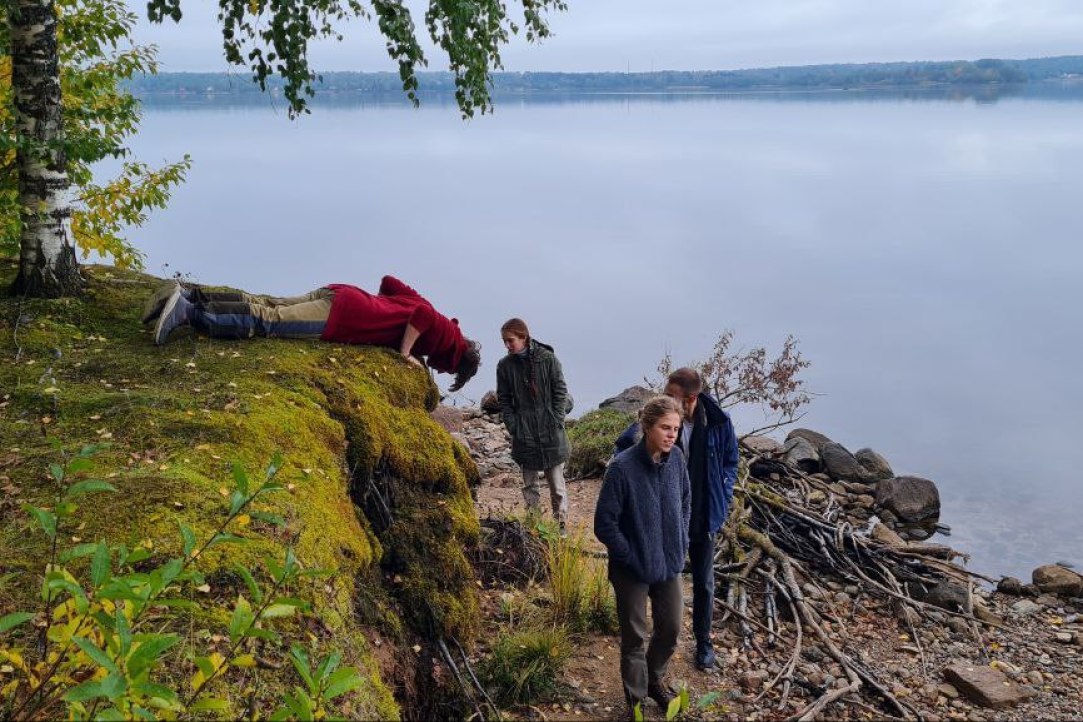News from the fields on Lake Velyo: the fourth trip of the Society of Field Linguists took place
On October 1-2, the fourth retreat seminar of the Society of Field Linguists took place, organized jointly by the staff of the Linguistic Convergence Laboratory and the Institute for Linguistic Studies (RSA).

On October 1-2, the fourth retreat seminar of the Society of Field Linguists took place, organized jointly by the staff of the Linguistic Convergence Laboratory and the Institute for Linguistic Studies (RSA). The village of Simanikha in the Novgorod region was the venue chosen for the forum. According to the practice of the Society, the topic of this autumn meeting was leading from the fields — a discussion of various grammatical and organizational matters related to recent or coming expeditions.
On Saturday morning, the participants cooked delicious squashes and then moved to reflect on Northern Khanty possessiveness. In his report What else to notice regarding possessive constructions in your language: The Storto Effect, Styopa Mikhailov shared his experience with the semantics of possessives. More specifically, he examined possible restrictions on free possessive interpretations.
Puzzled by whether the Storto Effect is still observable in Northern Khanty, field linguists split into two groups. While one part cooked dinner, the other went boating on Lake Velyo. Instantly, relaxing navigation through picturesque places turned into a race to conquer an uninhabited island.
Back from the island, Olga Pavlova and Timofey Kornev began their report Documentation of the Naukan language and a little sociolinguistics in Chukotka. The discussion of the Far Eastern region resumed the next day thanks to Marusya Pupynina's presentation Evolution of the linguistic community of the Tundra Yukaghirs. Finally, Yury Koryakov made another report in the genre “news from the fields” (although from absolutely different ones), entitled Amukh-Anklukh and Mitagi-Dzhalgan: the experience of field research of two small languages of Southern Daghestan.
In between presentations, the participants went for long walks along the lake and took training in shooting from a bow and throwing knives. In the meanwhile, other field linguists were gathering mushrooms for dinner. The attempt by a group led by Anton Buzanov to fry kebabs under the pouring rain resulted in an unforgettable experience. Thanks to the magician of fire and the courageous barbecue people, dinner became a sensation.
In addition to accounts on present-year expeditions, other talks dealt with field research methodology. For instance, Alina Russkikh's presentation Peculiarities of designing a questionnaire for first reactions made everyone try to elucidate what a first reaction is and why we need it. After Evgenia Korovina's report Ideal contexts for the Swadesh list, participants agreed that comparative historical and field linguists need collaboration. Garik Moroz addressed the crucial problem of data organization in this presentation Database vs. table: when and what to choose? The discussion of this topic with specific examples continued in the report of Kira Kovalenko and Ivan Usalko Databases in the humanities: new opportunities (illustrated with PhytoLex).
One of the principal values of the trip, as always, was the opportunity for informal exchange on exciting scientific issues, which periodically spilled over into songs with guitar accompaniment and dances.
Written by Elena Shvedova, translated by Manuel Padillia
